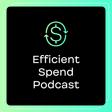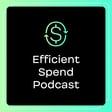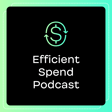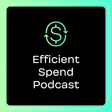
Google Product Manager turned Incrementality Founder | Zachary Epstein
SUBSCRIBE TO LEARN FROM PAID MARKETING EXPERTS 🔔
The Efficient Spend Podcast helps start-ups turn media spend into revenue. Learn how the world's top marketers are managing their media mix to drive growth!
In this episode of the Efficient Spend Podcast, Zachary Epstein, founder of Haus and a former Google Product Manager, discusses the alignment of incentives between ad networks and advertisers, the complexities of performance measurement, and the importance of quickly testing and learning from marketing experiments. He shares his insights on the evolution of ad platforms and democratizing access to sophisticated marketing tools.
About the Host: Paul is a paid marketing leader with 7+ years of experience optimizing marketing spend at venture-backed startups. He's driven over $100 million in revenue through paid media and is passionate about helping startups deploy marketing dollars to drive growth.
About the Guest: Zachary Epstein is a marketing analytics expert with over a decade of experience, former product manager at Google and founder of Haus, a company specializing in causal inference analytics and data infrastructure, helping companies optimize their marketing spend through sophisticated experimentation and measurement tools.
VISIT OUR WEBSITE: https://www.efficientspend.com/
CONNECT WITH PAUL: https://www.linkedin.com/in/paulkovalski/
CONNECT WITH ZACHARY: https://www.linkedin.com/in/zach-epstein-b7b10525/
EPISODE LINKS:
https://www.haus.io/about
https://ads.google.com/intl/en_PH/home/
https://www.facebook.com/business/ads
https://www.marketingevolution.com/knowledge-center/incrementality-in-marketing
https://bookdown.org/mike/data_analysis/causal-inference.html
https://support.google.com/google-ads/answer/
https://www.youtube.com/ads/



